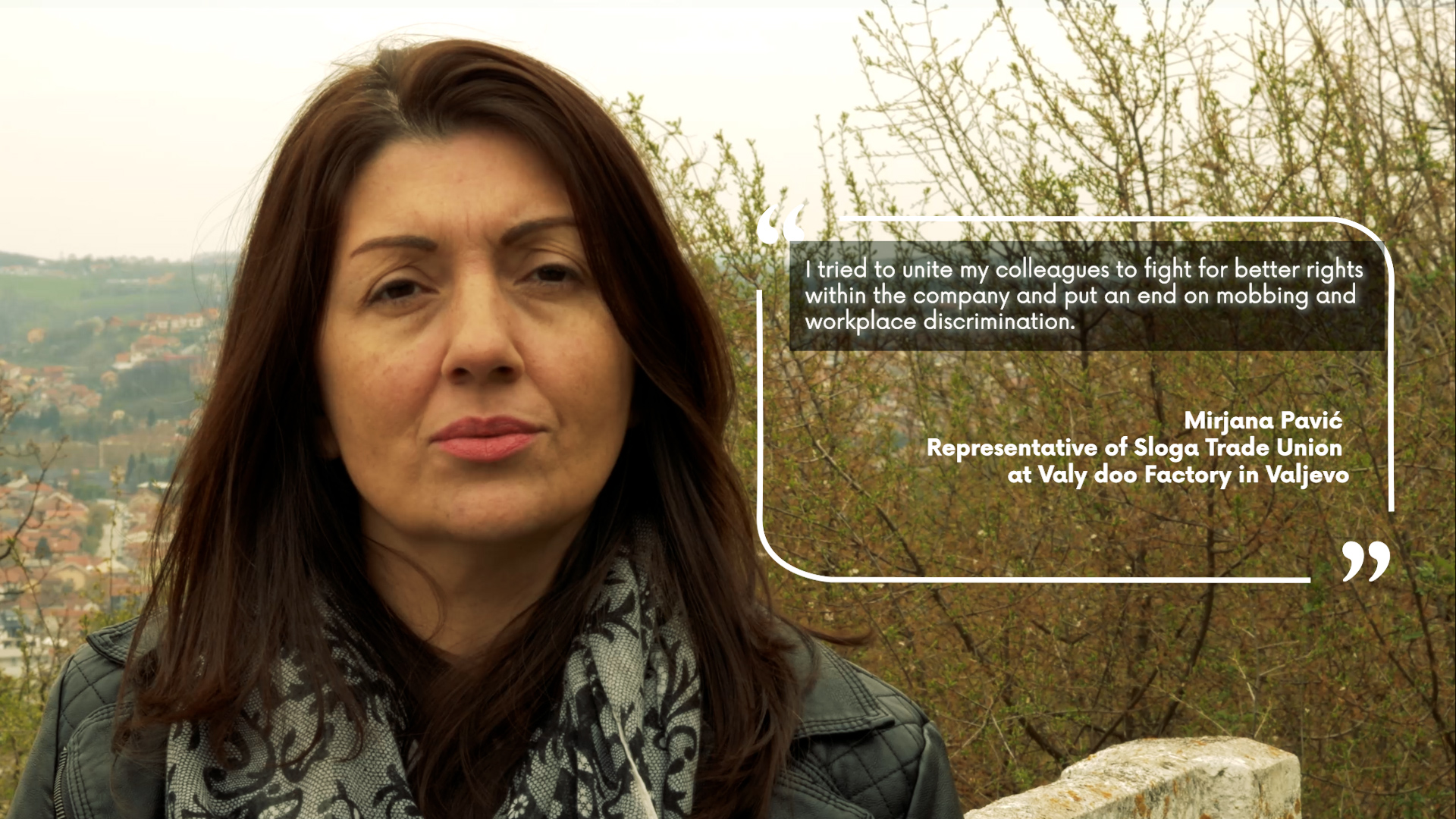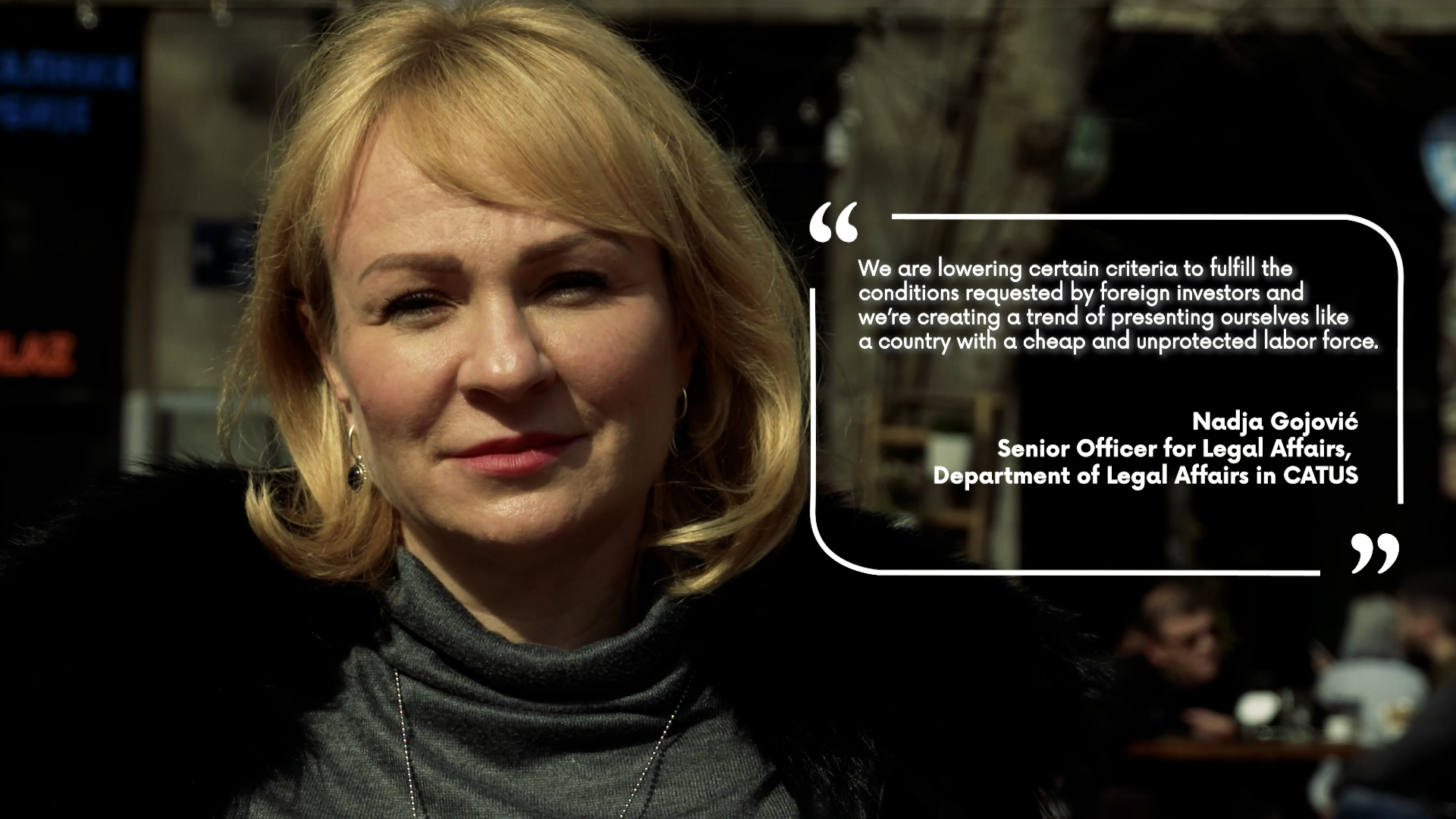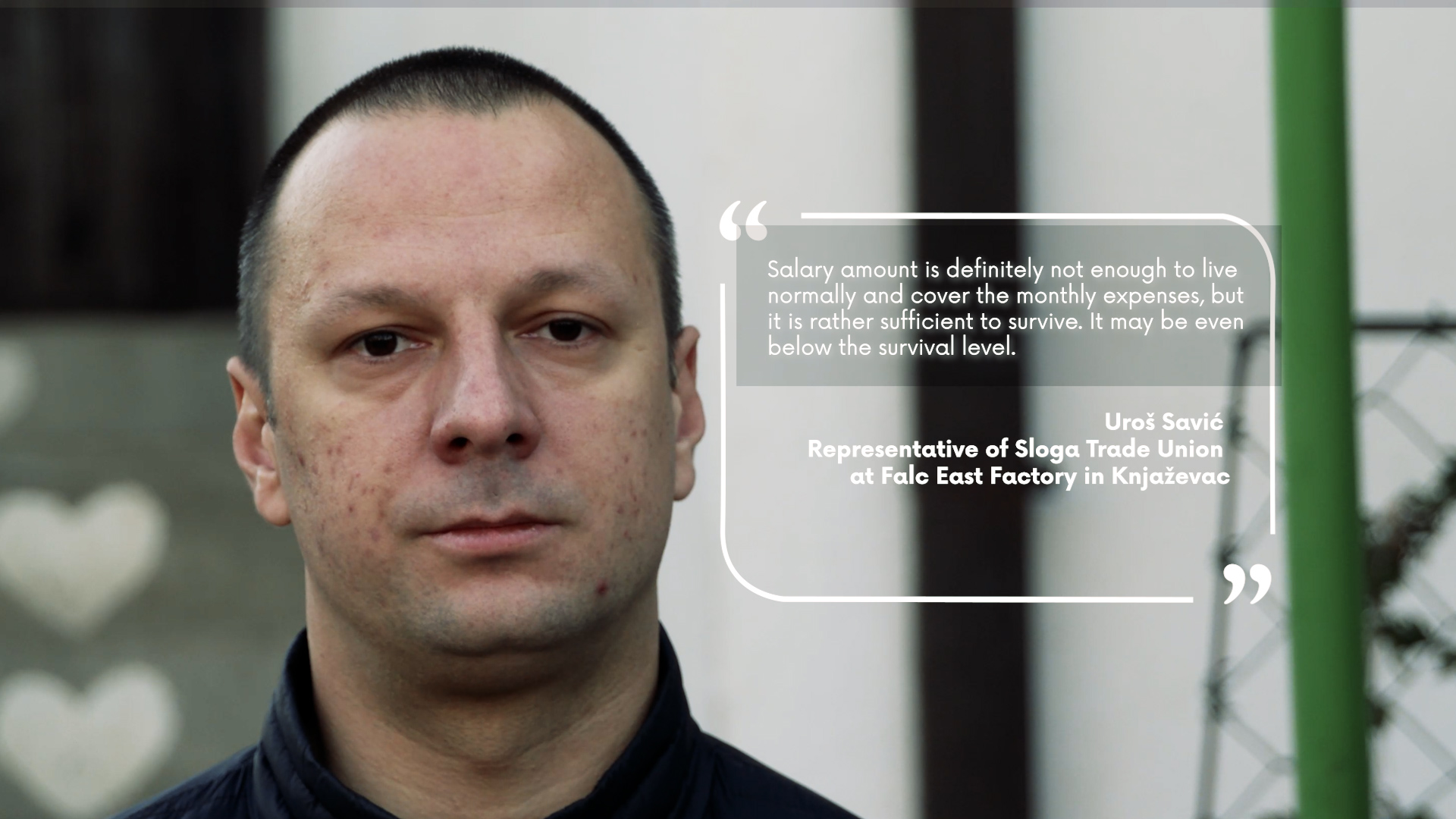Beyond the label - Made in Serbia (2022)
This web documentary Beyond the Label – Made in Serbia examines the situation in the Serbian textile and footwear industry when it comes to labour rights’ violations, especially hindrances to trade union organizing and poverty wages. The Serbian case is not isolated as it represents a reality experienced in most Central, East and Southeast European countries and hence serves as an example of malpractice affecting more than 1.7 million – predominantly women - workers in the region
Labour rights violations are the direct outcome of the uneven power relations in the global textile and footwear supply chains between the workers on the one end and the brands and retailers on the other. Contributing factor to this disbalance are changes in the labour law legislation initiated by governments which are often guided by the neoliberal mantra “foreign investor knows best”. With the adaptation of the Amendments to the Labour Law in 2014 the Serbian Parliament increased the labour market flexibility which caused a further degradation of the labour rights in the country. The passed amendments had a serious impact on workers' rights, including changes to severance pay, compensation for sick and paid leave, as well as weakening the position of trade union representatives and the worker’s right to collective bargaining.
Another burning issue in the Serbian textile and footwear sector are wages which are insufficient for the workers to lead a decent life. Given this situation, many are forced to do overtime, have a second source of income, engage in subsistence agriculture, and reschedule loans all the time.
For the national legislation to protect the workers and their representatives, it is necessary to limit the power of multinational corporations on the global level. In that sense, it is promising to see a growing number of international legal initiatives for a mandatory human rights accountability of multinational corporations along their whole supply chains. Many of these initiatives specify that these responsibilities need to include the right to a living wage.
The web-documentary was made with contribution from the Friedrich Ebert Foundation (FES).
Interviews:
- Nađa Gojović, Senior Officer for Legal Department of Legal Affairs in CATUS
- Uroš Savić, Representative of Sloga Trade Union at Falc East Factory in Knjaževac
- Mirjana Pavić. Representative of Sloga Trade Union at Valy doo Factory in Valjevo
Experts:
- Bojana Tamindžija, Clean Clothes Campaign Serbia / National Coordinator, Center for the Politics of Emancipation
- Aleksandra Draganić, political scientist, coordinator of MA programme Labour Policies and Globalisation at University of Kassel
- Bettina Musiolek, Clean Clothes Campaign Germany
Credits:
Directed and edited by: Claudio Montesano Casillas
Produced by: Aleksandra Draganić and Bojana Tamindžija
Director of photography: Željko Bajić
Narrated by: Aleksandar Marković
Animation: Claudio Montesano Casillas & Aldo Vidrio
Music: SilverHoof – For Documentaries; elements.envato.com (Creative Commons Licence); GentleJammers – Moving Documentary; elements.envato.com (Creative Commons Licence)
Special thanks to: Igor Schiller, Bettina Musiolek, Matthias Weber, Aldo Vidrio, Khalid Karmoudi, Slavko Barišić and Marija Aranđelović


